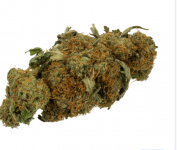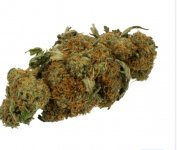As the title states, I am seeking advice from the medical professionals on this forum for expanding my first-aid/urgent care kit.
I am well stocked and trained for dealing with traumatic injuries to the musculoskeletal apparatus in austere environments. I also have means and knowledge to address severe hemorrhages and penetrating chest wounds as much as one could expect from a layman. But there is a gap in my medical preparedness that became obvious recently when I experienced two medical issues that in themselves were not critical but severely reduced my ability to fend for myself. Fortunately, these incidents happened in "civilization" and not where they could have become a life-threatening problem.
The first incident was an acute corneitis on the left eye several months ago. My left eye is corrected, via a contact lens, for distant vision while the right eye is uncorrected for proximity focus. (This is called monovision and actually pretty cool since I can have both iron sights and target in focus with both eyes open and the brain merging the information.)
The result of the corneal inflammation in the left eye was that I had to remove the contact lens and could not focus any further than a few feet in bright daylight and that both eyes were watering profusely like having just cut some potent onions. Not a big deal when you are home but a serious problems when you HAVE to walk in the woods or drive in urban traffic. I tried an improvised eyepatch but the healthy eye was still watering like crazy adding to the already severe acuity degradation from loosing distant vision. And lets not forget the distraction from the pain, which was substantially more annoying than the worst tooth ache I ever experienced. A prescription eyedrop formulation containing an antibiotic and corticosteroid resolved the debilitating symptoms in less than an hour. It took a few more days before I could put the contact lens back in the left eye but the pharmaceutical intervention got me quickly "back in the fight".
I am currently recovering from the second hit that started with one of my terriers snuggling against my neck and face. Unfortunately for me, he must have just pursued some critter in poison ivy without me noticing it. Long story short, on day three both of my eyes were swollen shut and yours truly was down for the count again.
Luckily a friend and MD stopped by, saw my grotesquely disfigured face, prescribed Methylprednisolone (another corticosteroid) plus Benadryl and got it for me from the local pharmacy. Similarly to the experience with the corneal inflammation the debilitating symptoms receded within the first hour of taking the medicine and another hour later I can now type these words. I am going to stay off the wheel while taking the Benadryl but I could continue to hike and sustain my life outdoors at this point if needed.
What other scenarios are common that can easily be resolved with the right medicine but could otherwise lead to a critical debilitation? What pharmaceuticals should therefore be included in a medical kit for austere environments? (I can get the prescription for whatever is useful and pledge to learn and understand the use and contraindications similar to gaining the knowledge for applying mechanical and plumbing remedies.)
Mods: Please move this thread if there is a more suitable place than the pit.
I am well stocked and trained for dealing with traumatic injuries to the musculoskeletal apparatus in austere environments. I also have means and knowledge to address severe hemorrhages and penetrating chest wounds as much as one could expect from a layman. But there is a gap in my medical preparedness that became obvious recently when I experienced two medical issues that in themselves were not critical but severely reduced my ability to fend for myself. Fortunately, these incidents happened in "civilization" and not where they could have become a life-threatening problem.
The first incident was an acute corneitis on the left eye several months ago. My left eye is corrected, via a contact lens, for distant vision while the right eye is uncorrected for proximity focus. (This is called monovision and actually pretty cool since I can have both iron sights and target in focus with both eyes open and the brain merging the information.)
The result of the corneal inflammation in the left eye was that I had to remove the contact lens and could not focus any further than a few feet in bright daylight and that both eyes were watering profusely like having just cut some potent onions. Not a big deal when you are home but a serious problems when you HAVE to walk in the woods or drive in urban traffic. I tried an improvised eyepatch but the healthy eye was still watering like crazy adding to the already severe acuity degradation from loosing distant vision. And lets not forget the distraction from the pain, which was substantially more annoying than the worst tooth ache I ever experienced. A prescription eyedrop formulation containing an antibiotic and corticosteroid resolved the debilitating symptoms in less than an hour. It took a few more days before I could put the contact lens back in the left eye but the pharmaceutical intervention got me quickly "back in the fight".
I am currently recovering from the second hit that started with one of my terriers snuggling against my neck and face. Unfortunately for me, he must have just pursued some critter in poison ivy without me noticing it. Long story short, on day three both of my eyes were swollen shut and yours truly was down for the count again.
Luckily a friend and MD stopped by, saw my grotesquely disfigured face, prescribed Methylprednisolone (another corticosteroid) plus Benadryl and got it for me from the local pharmacy. Similarly to the experience with the corneal inflammation the debilitating symptoms receded within the first hour of taking the medicine and another hour later I can now type these words. I am going to stay off the wheel while taking the Benadryl but I could continue to hike and sustain my life outdoors at this point if needed.
What other scenarios are common that can easily be resolved with the right medicine but could otherwise lead to a critical debilitation? What pharmaceuticals should therefore be included in a medical kit for austere environments? (I can get the prescription for whatever is useful and pledge to learn and understand the use and contraindications similar to gaining the knowledge for applying mechanical and plumbing remedies.)
Mods: Please move this thread if there is a more suitable place than the pit.
Last edited:



